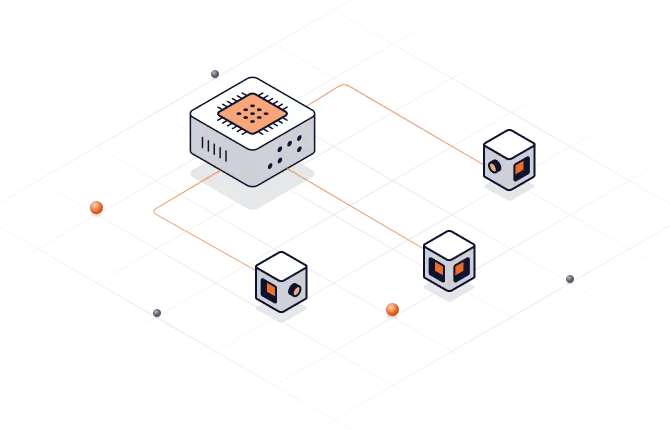Content Management for Omnichannel Success - Why Hybrid CMS is Essential
The omnichannel concept has become central to crafting seamless and integrated customer experiences in the dynamic digital marketing landscape. Omnichannel, at its core, refers to the strategic alignment of various channels through which businesses interact with their audience –whether it’s a website, app, VR experience, store display, or smartwatch, it’s important to provide a consistent and cohesive experience across all touchpoints.
In today’s digital world, achieving omnichannel success is non-negotiable for businesses. As consumers interact with brands across various digital touchpoints, a robust Content Management System (CMS) becomes paramount. Enter the Hybrid CMS – a game-changer that bridges the gap between traditional and headless CMS architectures.

Understanding Hybrid CMS Features
1. Hybrid Headless Architecture
A Hybrid CMS, like dotCMS, boasts a hybrid headless architecture. This means it combines the flexibility of a headless CMS with the visual editing features of a traditional CMS, offering a versatile approach. This innovative solution allows businesses to centralize content while empowering developers to build flexible, channel-specific frontends. This translates to the freedom to build and extend functionalities while providing marketers with user-friendly tools for content creation.
2. Centralized Content Management
Hybrid CMS provides a unified content management platform, enabling businesses to create, edit, and distribute content from a central hub. This centralization ensures consistency in messaging and branding across all digital touch-points.
3. Multi-Channel Distribution
Hybrid CMS solutions like dotCMS excel in multi-channel distribution. Marketers can effortlessly distribute content across various channels, ensuring a cohesive brand message. Frontend developers are guaranteed the versatility that enables them to optimize content delivery for different platforms without compromising on design or functionality. Whether it's a website, mobile app, IoT device, or social media platform, the CMS ensures that content remains optimized for each channel.
4. Seamless Integration Capabilities
One of the standout features of a Hybrid CMS is its ability to integrate with various tools and technologies seamlessly. This is invaluable for frontend developers looking to create a cohesive digital ecosystem, ensuring that the CMS works harmoniously with existing tech stacks.
5. Efficient Workflow for Content Creators
Today’s digital campaigns are complex and require the coordination of multiple touchpoints along the customer journey. With dotCMS, you can easily create and manage sophisticated, multi-step, parallel workflows without heavy coding, thanks to NoCode tooling and capabilities.
6. Flexibility for Development Teams:
Development teams benefit from the flexibility of a Hybrid CMS, allowing them to create customized frontends for specific channels. This flexibility ensures that the user experience is tailored to the unique characteristics of each platform, enhancing engagement.
Meeting Omnichannel Needs with dotCMS
Achieving omnichannel success requires a CMS that can adapt, unify, and deliver content seamlessly across diverse digital touchpoints. A Hybrid CMS emerges as the essential solution, providing the versatility and scalability needed to navigate the complexities of the digital landscape.
dotCMS stands out for its ability to meet the diverse needs of omnichannel content management. Its hybrid headless architecture, centralized content management, and seamless integrations position it as the best hybrid CMS for businesses striving for omnichannel success.
Stay ahead of the competition and elevate your omnichannel strategy with Hybrid CMS. Embrace adaptability, empower your teams, and ensure unparalleled user experiences across every digital interaction.
Recommended Reading
Benefits of a Multi-Tenant CMS and Why Global Brands Need to Consolidate
Maintaining or achieving a global presence requires effective use of resources, time and money. Single-tenant CMS solutions were once the go-to choices for enterprises to reach out to different market...
Headless CMS vs Hybrid CMS: How dotCMS Goes Beyond Headless
What’s the difference between a headless CMS and a hybrid CMS, and which one is best suited for an enterprise?
14 Benefits of Cloud Computing and Terminology Glossary to Get You Started
What is cloud computing, and what benefits does the cloud bring to brands who are entering into the IoT era?